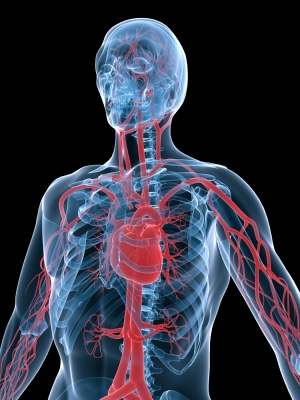
It’s hard to read sports news anymore without hearing about someone getting caught for illegal use of performance enhancing drugs.
Even though most of us are not competing with such high stakes, virtually everyone is looking to enhance their athletic performance and there are ways to do that without cheating and resorting to illicit medications.
If you continually fuel your body with the best nutrition, you will definitely see noticeable improvements in speed, endurance, and recovery, as you train. On the other hand, fueling with junk will promote injuries, strains, sprains, early fatigue, bonking and burnout.
It really can make a huge difference.
Young or old, all athletes need the lots of nutrition to push their bodies to the limit, and an athlete needs more nutrition-packed foods than the average person.
While there are literally thousands of supplements marketed towards athletes and improved performance, I wanted to over the purely natural ones you can get just from a healthy diet alone.
We all know you need a good mix of carbs, proteins, and healthy fats in the right proportions, but the actual food source of each of these is extremely important as well.
All protein is not alike, nor are all carbs, or all fats.
Carbs and fat store energy for muscles. These two nutrients are converted to energy in the form of adenosine triphosphate, or ATP, which fuels muscles. These two macronutrients are converted to usable energy differently.
Carbohydrate is converted into blood glucose and is the first fuel burned during high intensity activities. The best carbohydrates are actually organic fruits and vegetables, which supply longer lasting energy than grain or sugar based energy sources–without causing the blood sugar spikes and resulting nosedive.
Grain and sugary forms of fuel are quickly converted into glucose in the body and after blood sugar spikes, insulin is released and the result is even lower blood sugar. In an athletic competition, this can become a bonk, as your body burns through the glucose and then searches for another fuel source. Bicycling magazine has a great article on this subject here. It seems that low glycemic foods eaten prior to a race result in far greater returns that high glycemic foods like sugar and grains. So an apple is far better than a cookie or a bagel.
Fat is actually a better source of slower burning energy for the athlete.
Healthy fats supply almost 20 times the ATP in the muscles as carbohydrates, and blood sugar levels remain stable, so no bonk. Good sources of healthy fats are the anti-inflammatory omega 3 fats, virgin coconut oil (a medium chain triglyceride, which is immediately used for energy), virgin olive oil (high in antioxidants and anti-inflammatory ingredients) grass fed butter (packed with vitamin A, D, and K2–a difficult to find but essential vitamin) and nuts (rich in antioxidants, vitamins, minerals, and omega 3 fats).
Switching from a sugar burning diet, to a fat burning diet for energy and athletic performance may require a breaking-in period, as your body will search for the most easily accessible form of energy.
If it is used to getting glucose in the form of sweet and starchy snacks, then you will need to slowly wean yourself off of these, instead of just going cold turkey and expecting great results.
Muscles must have good quality protein to function well, repair, recover and regain their strength–especially after a hard workout.
Protein provides the building blocks for your muscles, and after a hard workout muscles are depleted, often with microtears, and need protein in order to rebuild. It’s best to eat protein within a half hour after working out, and some studies have shown that protein during and after a workout is best for maximum muscle recovery.
Many athletes are turning to grass fed beef as one of their primary protein sources, which has a much higher ratio of the energy boosting omega 3 fats to omega 6 fats; is full of muscle-building and fat-burning Conjugated Linoleic Acid, is more easily digestible, and avoids the antibiotics and hormones of regular conventionally raised meat.
Recently, CNBC ran a story on grass fed meat and athletes. Dr. Keith Pyne, a peak performance specialist who works with elite athletes, is a fan of grass-fed beef:
“Especially in the last five years, athletes have begun to understand that their diet and what they put in their bodies can have a [huge] effect on their performance,” said Pyne of SportsLab NYC. “Understanding the [omega 3:6] fat ratios in what they are eating and lowering their glycemic index is now on their mind.”
The Essential Fatty Acids of omega 3 and 6 also play an important role in the functioning of the human body.
While vegetable based omega-6 fats promote inflammation, the omega 3 fatty acids work to reduce inflammation, strengthen the immune system, and aid in muscle recovery and energy.
Since the days of the cavemen, we have evolved on a diet with a ratio of omega 6 to omega 3 of about 1:1. Huge changes in dietary habits over the last few centuries has changed this ratio to something closer to 20:1 which causes trouble in many ways, especially for an athlete.
Meat raised by conventional means on grain products contains large amounts of omega 6 fats, as opposed to grass fed and free range animals with healthier omega 3 fats. Research has shown that the correct balance of Essential Fatty Acids not only improves stamina and endurance; inflammation and muscle soreness after exercise, but also uses the amino acids from protein better to build and maintain muscle mass.
Athlete or not, everyone can benefit from the right balance of EFA’s , which in today’s world means more omega 3’s and less omega 6’s.
Whey is also a popular protein for sports drinks, energy bars and as an additive for smoothies and shakes. Cold processed whey protein powder is an excellent source of protein, even surpassing whole eggs, soy, meat, and other dairy sources with its excellent bioavailability and its ability to deposit nitrogen in the muscles.
Whey from a grass fed source is the absolute highest quality form of whey you can get, full of large amounts of Conjugated Linoleic Acid and omega 3 fatty acids, and none of the residual pesticides and hormones.
Whey is the only protein source that contains immunoglobulins, which are essential in maintaining immune system function. Whey protein builds up cellular glutathione levels. Glutathione has been called the ‘master antioxidant’, and regulates the actions of other antioxidants such as vitamin C, and vitamin E within the body.
No other antioxidant is as important to overall health as glutathione.
Be sure the whey source you use is cold processed as heat processing denatures the fragile protein molecules in the whey and renders them virtually useless. Unfortunately, most protein powders and protein additives use heat processing.
Conjugated Linoleic Acid (CLA) is another important fatty acid that enhances athletic performance. Conjugated linoleic acid (CLA) works not only as a powerful anti-oxidant, but also fights cancer and strengthens the immune system.
While CLA is known as a fat burner, the other key benefit of this important fat is that it triggers an increase in muscle mass and strength. CLA comes from diet, mostly from beef and dairy fats such as grass-fed beef, butter, cheese, and raw whole milk.
Cows raised on grass have about 5 times as much CLA as conventional meat and dairy cows.
While some health food stores will sell CLA supplements, most nutrition scientists agree that naturally occurring CLA from food is utilized better in the body.
Another supplement, creatine, is extremely popular with athletes and body builders. It is found naturally in the skeletal muscle, and is essential for the production of adenosine triphosphate (ATP), the cellular fuel that is burned by muscles.
Creatine is actually a natural ingredient of red meat.
Creatine is manufactured in the body from the amino acids glycine, arginine, and methionine.
The primary energy-producing molecule for bursts of vigorous muscle contraction is adenosine triphosphate (ATP). ATP, or adenosine triphosphate, lasts in the muscles for about 10 or so seconds, after which time your body must produce more to keep your muslces going. Your ability to supply more ATP to the muscles and make more ATP depends on creatine.
Large reserves of creatine help with endurance, buffer lactic acid, and aid in muscle fatigue. Creatine enhances the ability of the muscle to maintain high power output during brief periods of intense exercise, as in a sprint or interval training. Creatine also revives tired muscles, allowing them to work harder for longer time periods. So for short hard efforts, creatine is a valuable nutrient to add to the athlete’s diet. Creatine supplements are available, but can cause a few negative side effects, including severe stomach cramps and digestive issues.
Vegetables and fruit serve a dual purpose in an athlete’s diet, and as a healthy slow-burning complex carbohydrate, they are excellent. Yes, vegetables are carbs.
Veggies and fruit also contain loads of powerful phytochemicals and antioxidants, which serve to power your performance with tons of energy, supply crucial vitamins and minerals, but also help to minimize inflammation, reduce injury, protect the immune system, and guard cellular health.
Recent studies have shown another valuable nutrient in many vegetables, most notably the oft-misunderstood beet. It has been found that certain vegetables including beets contain nitrate, which is converted in the body to nitric oxide.
Dietary nitrate reduces oxygen needs during exercise and so, boosts athletic performance.
Drinking 500 ml of beet juice 2.5 hours before a cycling time trial improved 4 km TT time by 2.8% and 10-mile TT time by 2.7% compared to the placebo group. Not impressed?
How about this: the 4K time trial with beet juice, was 6.26 minutes vs. 6.45 minutes without, and the 16K was 26.9 min. with the beet juice, vs. 27.7 minutes. That’s almost a minute! A minute is a lot in a TT.
Look at it this way: we cyclists pay a couple thousand dollars for lightweight aero wheels. As shown on the Zipp wheels data, for a 1080 front and a sub9 disc wheel (total cost about $3200) you can expect to save 108 seconds, over a 40K race. That’s equivalent to 43 seconds over a 16K race, while the beet juice saved people 48 seconds over a 16K race. $3200 for wheels, or down some beet juice at 6-8$ a bottle.
Hmm…I’m trying beet juice.
The effects of nitric oxide have been known for years.
Some of these effects scientists are not quite clear on, such as increasing mitochondrial action in the cells. We do know, however, that nitric oxide causes vasodilation , or dilating blood vessels. Researchers think that this is how it helps get oxygen to the working muscles more efficiently.
Another nutrient that vasodilates is magnesium.
Magnesium as you may or may not know is responsible for over 300 cellular functions and is extremely important to the athlete. Athletes lose more Mg than sedentary folks from working out hard and from sweating. Magnesium helps muscular strength and energy, as well as helping the heart pump slower and more smoothly; it relaxes the airways and dilates the blood vessels; all of which help to aid in athletic performance.
Cherry juice is another one of those magic elixirs for athletes. Tart cherry juice can actually help prevent inflammation, muscle soreness, and promote deep, restful sleep. Read the whole article on cherry's benefits.
There are a zillion other nutrients that aid in athletic performance and recovery, but these are some of the most significant.
Bottom line is this: avoid the processed, sugary junk which clogs up the system and slows you down, eat tons of healthy veggies and fruits, eat good amounts of high quality protein and healthy fats and you will find that your workouts will pay off in a big way!
Till next time, stay healthy, lean and energetic!

P.S. Look for my new Superfoods recipe book coming soon!!
 Catherine (Cat) Ebeling RN BSN, is a back to basics diet and nutrition specialist.
Catherine (Cat) Ebeling RN BSN, is a back to basics diet and nutrition specialist.
In addition to her advanced degree in nursing from a major medical school, she has spent the last 30 years intensely studying diet, health and nutrition. She also has a book titled "The Fat Burning Kitchen, Your 24 Hour Diet Transformation" that has sold over 60,000 copies worldwide, and has helped thousands of people transform their lives, lose weight and improve their health.
Her mission is to help others prevent disease and live their best life ever.
Nutrition made Easy. Simple.Smart.Nutrition.
Sources:
Dr. Al Sears MD, Health Confidential Newsletter, Jan 22, 2009, Iss. 35
Hajoway, Mike, “What CLA can do for you”, Bodybuilding.com, 2011.
Fritsche S, Rumsey TS, Yurawecz MP, Ku Y, Fritsche J. Influence of growth promoting implants on fatty acid composition including conjugated linoleic acid isomers in beef fat. Eur. Food Res. Technol. 212:621-629 (2001).
Lowery LM, Appicelli PA, Lemon PWR. Conjugated linoleic acid enhances muscle size and strength gains in novice bodybuilders. Med Sci Sports Exerc 1998;30:S182 [abstract].
Thom E, Wadstein J, Gudmundsen O. Conjugated linoleic acid reduces body fat in healthy exercising humans. J Int Med Res 2001;29:392-6.






